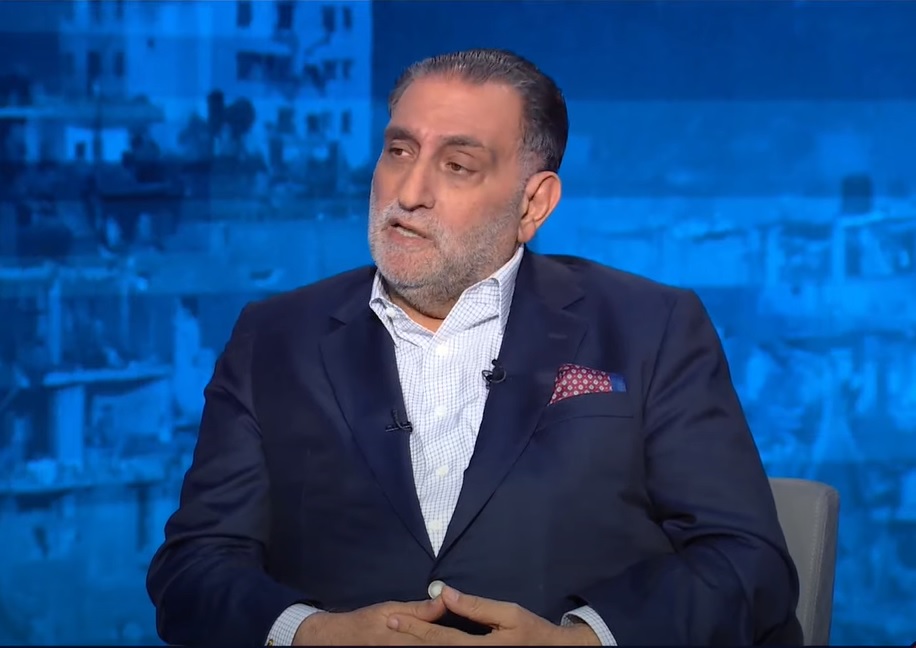عزمي بشارة: نتوقع الأسوأ في فلسطين برئاسة ترامب ويجب أن تكون هناك مجموعة عربية ضاغطة
عربي | 18 نوفمبر, 2024 - 12:22 ص

 كيف رأت الصحافة الغربية تصاعد التوتر بين السعودية والإمارات في اليمن؟
كيف رأت الصحافة الغربية تصاعد التوتر بين السعودية والإمارات في اليمن؟  اللواء المالكي يكشف تفاصيل جديدة بشأن سفينتي الأسلحة الإماراتية في المكلا
اللواء المالكي يكشف تفاصيل جديدة بشأن سفينتي الأسلحة الإماراتية في المكلا  مأرب.. اللجنة الأمنية والعسكرية تؤكد تأييدها المطلق لقرارات الرئيس العليمي وتدعو لرفع الجاهزية القصوى
مأرب.. اللجنة الأمنية والعسكرية تؤكد تأييدها المطلق لقرارات الرئيس العليمي وتدعو لرفع الجاهزية القصوى  مواقف عربية وخليجية تؤكد دعم الشرعية اليمنية ووحدة البلاد وتدعو لخفض التصعيد
مواقف عربية وخليجية تؤكد دعم الشرعية اليمنية ووحدة البلاد وتدعو لخفض التصعيد  المخلافي: انسحاب القوات الإماراتية يجب أن يشمل كامل الأراضي اليمنية وسقطرى والجزر التابعة لها
المخلافي: انسحاب القوات الإماراتية يجب أن يشمل كامل الأراضي اليمنية وسقطرى والجزر التابعة لها  العليمي: التطورات اليوم لم تكن خلافا سياسيا بل تهديدًا لتقويض فكرة الدولة ووحدة القرار الأمني والعسكري
العليمي: التطورات اليوم لم تكن خلافا سياسيا بل تهديدًا لتقويض فكرة الدولة ووحدة القرار الأمني والعسكري 
 كيف رأت الصحافة الغربية تصاعد التوتر بين السعودية والإمارات في اليمن؟
كيف رأت الصحافة الغربية تصاعد التوتر بين السعودية والإمارات في اليمن؟  اللواء المالكي يكشف تفاصيل جديدة بشأن سفينتي الأسلحة الإماراتية في المكلا
اللواء المالكي يكشف تفاصيل جديدة بشأن سفينتي الأسلحة الإماراتية في المكلا  مأرب.. اللجنة الأمنية والعسكرية تؤكد تأييدها المطلق لقرارات الرئيس العليمي وتدعو لرفع الجاهزية القصوى
مأرب.. اللجنة الأمنية والعسكرية تؤكد تأييدها المطلق لقرارات الرئيس العليمي وتدعو لرفع الجاهزية القصوى  مواقف عربية وخليجية تؤكد دعم الشرعية اليمنية ووحدة البلاد وتدعو لخفض التصعيد
مواقف عربية وخليجية تؤكد دعم الشرعية اليمنية ووحدة البلاد وتدعو لخفض التصعيد  المخلافي: انسحاب القوات الإماراتية يجب أن يشمل كامل الأراضي اليمنية وسقطرى والجزر التابعة لها
المخلافي: انسحاب القوات الإماراتية يجب أن يشمل كامل الأراضي اليمنية وسقطرى والجزر التابعة لها  العليمي: التطورات اليوم لم تكن خلافا سياسيا بل تهديدًا لتقويض فكرة الدولة ووحدة القرار الأمني والعسكري
العليمي: التطورات اليوم لم تكن خلافا سياسيا بل تهديدًا لتقويض فكرة الدولة ووحدة القرار الأمني والعسكري 
عربي | 18 نوفمبر, 2024 - 12:22 ص
